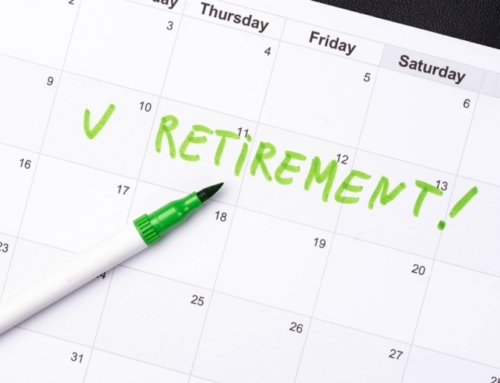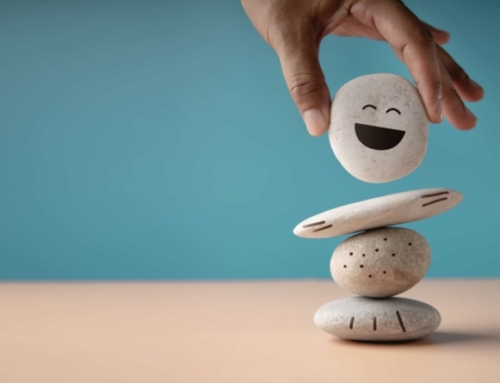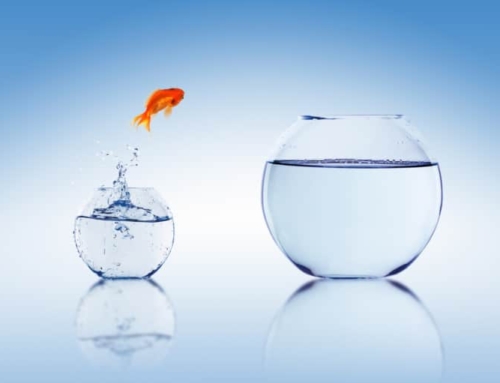Recall or imagine the following scenario: a very important and likely stress-inducing event that involves you directly has just concluded. This event could be, for example, an M&M conference at which you present a case, a legal deposition in which you’re grilled by a plaintiff’s attorneys, or a job interview at a place you really want to work.
Once this event is over, you find yourself back on the sidewalk, perhaps walking to your car. You find yourself taking a deep breath and exhaling deeply. You breathe again. And once again. You don’t choose to breathe this way; it just happens. You notice after you’ve done it that you feel better from it. With each deep breath, you feel the stress leaving your body, exhaled out into the ether.
Only now, after the event, do you realize just how stressed you’ve been and, actually, for how long, perhaps for days or weeks leading up to this fate-defining event.
My point in asking you to remember or imagine such a scenario?
All too many of us walk around for years, decades perhaps, with a burden of stress, barely noticed or only noticed when it has grown particularly bad. But this ‘particularly bad’ stress is likely merely acute stress rising from a bed of chronic stress.
Why is this stress unnoticed? It has grown; invisible because of its very chronicity. It is no longer a passing state, but a way of life, the noxious liquid in which you swim. It simply is now your life.
How, then, do you begin to notice?
One way is indirectly. Perhaps you’re chronically unhappy. You have all the adornments of success, but you know you’re not happy. Perhaps you look in the mirror and are surprised by how fast you’re aging. Perhaps you lack energy and verve. Sleep and eating don’t seem to refresh you as much as you imagine they should. Likely, you blame yourself: you should be happy, but you’re not. Something must be wrong with you and, perhaps, you deserve it.
Another way to notice is by directly turning your attention onto yourself and your moment-by-moment experience. You can try to put words to what you’re feeling and attend to the thoughts coursing through your mind. Perhaps immediately, perhaps gradually, you’ll begin to notice and to understand what it is that ails you.
One ‘game’ you can play with yourself to gain clarity is to personify your unhappiness or dissatisfaction. Ask it who it is, why it’s here, and what it has to say to you. Then listen closely. The answer can come at any time. Sometimes it’s as clear as hearing a voice.
What you’ll discover: many of the things you’ll learn about yourself won’t surprise you. But just because you’re not starting at zero does not mean there isn’t more to learn. There is always more to learn.
Brief aside: For many, the talk of focusing on oneself and one’s unhappiness seems indulgent, perhaps, even weak, useless, or counterproductive. It can be. However, I contend that one must arrive at some understanding of the nature of the problem and its sources in order to allow consideration of solutions. An intense focus on one’s inner self is best if it is a means to an end and not an end in itself. Navel-gazing is not my thing. (In case you’re wondering: I think and write from out of my self and not about my self.)
Back to the main point: there are two sources of stress that extend so broadly that they often become invisible. They have ‘no sides.’
The first source is a fundamental misalignment between your temperament and the life you lead. Temperament is the more biologically-based and less amenable-to-change part of your personality. Its aspects include introversion vs extroversion, thrill-seeking vs behavioral inhibition, and the speed of engagement, fast or slow. What do I mean by the latter?
Imagine you are on the slow end of the speed of thought. This has absolutely nothing to do with intelligence. After all, a person can have an incredible capacity to learn, understand, problem-solve, and create while the wheels of their mind turn more slowly than average. This is actually easy to spot: some people talk more slowly than others.
Staying with this example as illustration: if you think, perceive, feel, decide, and are moved to act more slowly, your entire engagement with the world is slower. If you’re in a world that moves at a faster pace, you’ll live in continual stress because you don’t have time to process all the stimuli – to notice and recognize them, consider and weigh them, and then respond. The opposite is true, too. If the wheels of your mind turn fast, a slow environment will drive you to want to pull your hair out. You likely won’t last in an academic setting and may need an entrepreneurial one instead.
So, do not underestimate the fundamental importance of choosing and building, and then immersing yourself in an environment that suits you, your fundamental temperament.
The second often invisible source of stress is unknowingly carrying the burden of the world. If you’re reading this – being a physician or other health professional – you’re likely high in conscientiousness. Highly conscientious people not only feel responsible for themselves but also often for the world around them. These days, given the incessant news cycle that encompasses the entire world, there is ever more to be concerned about. The highly conscientious person often unknowingly carries the weight of the world on their shoulders.
What I’m referring to goes beyond simply hearing of horrible things and worrying about the consequences for oneself and others. It includes feeling a responsibility to know and feel into each horrible event. There exists a moral imperative to bear witness to the suffering of others.
On the one hand, this is an admirable quality. We must have among us those who really, really care. But on the other hand, such a burden, now in the context of modern communications and the news/mindshare business, extends to the four corners of the world. It is, simply, too much. The bearer of such a burden will break down. A human psyche has not evolved to carry such a burden.
My advice to those to whom this applies: Carry a burden. Limit it. Know when to lay it down.
Not everyone needs to bear the entire world. Nay – no one needs to do so. Everyone should carry their local plot so that all together the world is borne in its glory and its suffering. It’s ok to narrow your scope, not because other places are less important, but because your task, as perhaps you see it, is not sustainable. One must trust that these other places will be watched over by others. You are not the only one. It is hubris to think so.
Also, to be brutally honest: despite this inner call some hear to bear the world’s burden, much of this bearance does not make a difference. It is empty of effect. The price paid has not bought a better outcome. That is the line of decision for the conscientious: do that which matters and, given the scope of the world’s need, only that.
Also, there are seasons of life that also guide what one ought to do. Some seasons of one’s life call for deep and urgent engagement. Other seasons for a constrained focus, engagement in a stance of humility, repose, and recuperation. The world spins, dying and rising into life at every moment. We are here to praise the day.
Thanks for reading.
Dr. Jack
Language Brief
“From the beginning of time, in childhood, I thought that pain meant I was not loved. It meant I loved.” ― Louise Glück
“The master said You must write what you see. But what I see does not move me. The master answered Change what you see.” ― Louise Glück
“As we begin to praise ourselves and our world, we begin to blossom in ways that are beautiful to behold.” ― Rumi
“I took a deep breath and listened to the old brag of my heart. I am, I am, I am.” ― Sylvia Plath







Leave A Comment